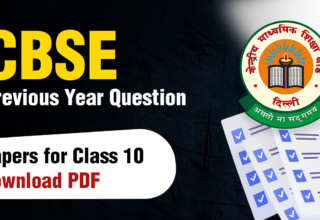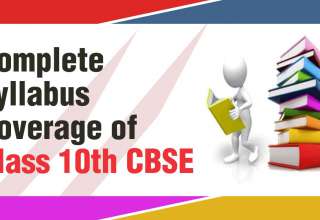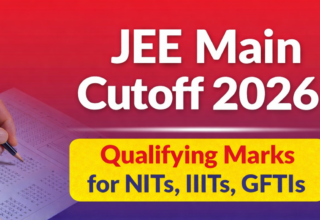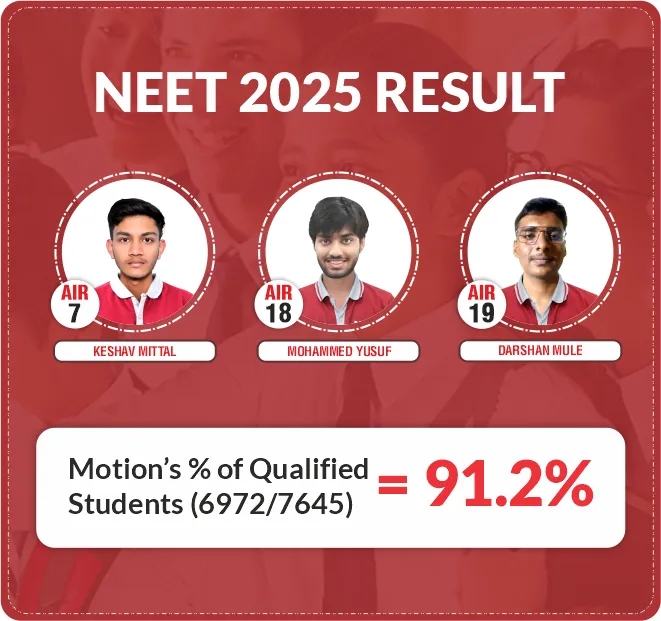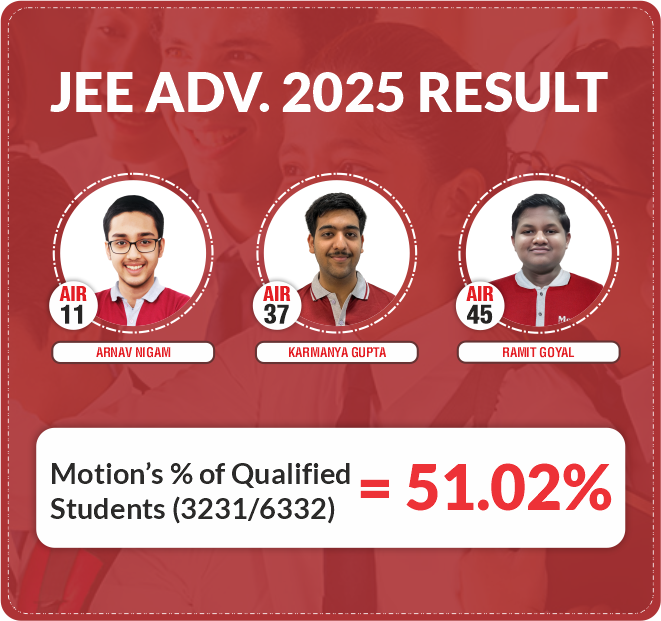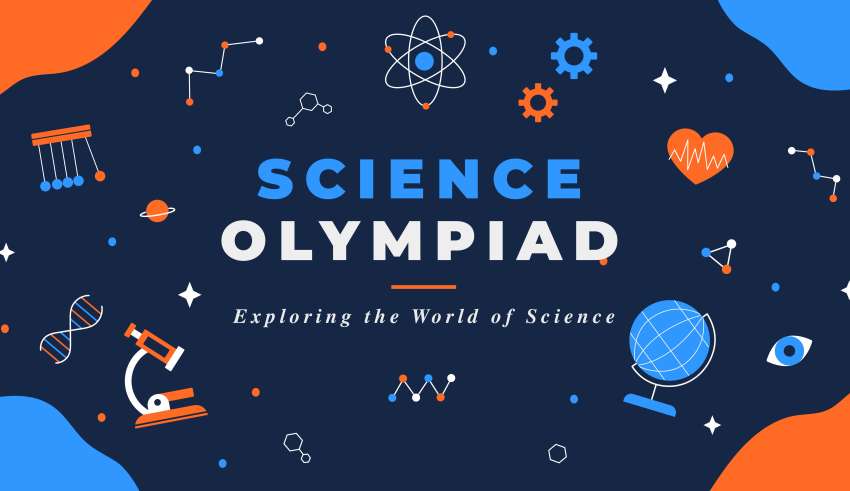
Science Olympiad
In recent times, Olympiad tests have become mandatory in schools, introducing students to national competitions from an early age. Science Olympiad exams emphasize concept-based learning and logical thinking, providing students with an opportunity to compete and gauge their own abilities in various subjects.
The Science Olympiad holds significant prominence in India, comprising two levels. The first level focuses on fundamental scientific principles, while the second level assesses students’ understanding of advanced scientific theories. Those who successfully clear the initial round of the Olympiad exam proceed to the second level.
List of Science Olympiad exams
| NSEB (National Standard Examination in Biology) |
| NSEP (National Standard Examination in Physics) |
| NSEC (National Standard Examination in Chemistry) |
| IOAA (International Olympiad on Astronomy and Astrophysics) |
| IBO (International Biology Olympiad) |
| InChO (Indian National Chemistry Olympiad) |
| InPhO (Indian National Physics Olympiad) |
| INBO (Indian Biology Olympiad) |
| NSTSE (National Level Science Talent Search Examination) |
| NSEJS (National Standard Examination In Junior Scientific) |
| IGKO (International General Knowledge Olympiad) |
| NSO (National Science Olympiad) |
| IAO (International Astronomy Olympiad) |
| INAO (Indian National Astronomy Olympiad) |
| IOQJS (Indian Olympiad Qualifier in Junior Science) |
| STSE (State Talent Search Examination) |
What is the Science Olympiad?
Science Olympiads offer numerous advantages and have garnered considerable student interest due to their wide-ranging benefits. These tests greatly aid in enhancing comprehension of various topics and related concepts. Below is a compilation of the Science Olympiad examinations.
NSEB Olympiad – National Standard Examination in Biology
The NSEB test is an integral component of the NSE (National Standard Examination), which conducts national scientific Olympiads to foster student development and offer a platform for competing in international competitions. Eligibility for this exam extends to students who have not yet completed Class 12.
NSEP Olympiad – National Standard Examination in Physics
The NSEP (National Standard Examination in Physics) is organized at a national level by the Indian Association of Physics Teachers (IAPT) in collaboration with multiple centers across the country. The main objective of this examination is to select participants for the International Science Olympiad and identify students who possess a strong inclination toward pursuing a career in physics.
NSEC Olympiad – National Standard Examination in Chemistry
The NSEC (National Standard Examination in Chemistry) is a collaborative effort between the Homi Bhabha Centre for Science Education and the Indian Association of Physics Teachers. It is conducted annually in November, with multiple examination centers designated for its administration. The National Science Education Center aims to promote and cultivate an interest in chemistry as a subject. The NSEC recognizes and acknowledges students’ achievements based on their performance in the examination.
NSEJS Olympiad – National Standard Examination In Junior Scientific
The NSEJS (National Standard Examination in Junior Sciences) is a science Olympiad designed specifically for junior students, as evident from its name. It was first conducted in the year 1987. This examination, administered by the IAPT (Indian Association of Physics Teachers), is renowned for being one of the most challenging national scientific exams. The NSEJS covers subjects such as Physics, Mathematics, Chemistry, and Biology.
IOAA Olympiad – International Olympiad on Astronomy and Astrophysics
The primary objective of the International Olympiad on Astronomy and Astrophysics (IOAA) is to cultivate a growing interest in astronomy and related STEM fields among young individuals, with a particular emphasis on general education. Additionally, the IOAA aims to enhance global collaboration in the advancement of astronomy and astrophysics education in schools.
IBO Olympiad – International Biology Olympiad
The International Biology Olympiad (IBO) is a highly esteemed global competition conducted annually in July, specifically designed for secondary school students. To be eligible for the IBO, students must secure a place among the top four participants in the final round of their country’s National Biology Olympiad (NBO). The NBO takes place during the current school year and is exclusively open to secondary school students in general education. All schools within each nation are invited to participate in the NBO.
InChO Olympiad – Indian National Chemistry Olympiad
InChO (Indian National Chemistry Olympiad) is a yearly competition that provides high school students with the opportunity to showcase their proficiency in the captivating subject of Chemistry. This annual contest is organized by the Homi Bhabha Centre in collaboration with the Indian Association of Chemistry Teachers.
InPhO Olympiad – Indian National Physics Olympiad
The Indian National Physics Olympiad (INPhO) is an annual event conducted by the Indian Association of Physics Teachers (IAPT) during the months of June and July. This competition is specifically designed for secondary school students who aspire to broaden their knowledge of Physics at an international level.
INBO Olympiad – Indian Biology Olympiad
INBO (Indian National Biology Olympiad) is a national-level competition conducted as part of the Biology Olympiad Program by the Homi Bhabha Centre For Science Education (HBCSE). It specifically targets students in classes 11 and 12. The exam takes place at more than 15 locations across India and garners substantial participation each year.
STSE – State Talent Search Examination
STSE (Secondary Talent Search Examination) is a scholarship test administered by the Board of Secondary Education, Ajmer, with the aim of assisting students who have ambitions of pursuing higher education at the graduate and post-graduate levels. This annual examination is open to Class 10 and 12 students from recognized examination boards.
Read About – Maths Olympiad Exams (IMO, PRMO, RMO, INMO, IOM)
Advantages of Science Olympiad Exams
Science Olympiad exams play a crucial role in unleashing a child’s potential, fostering a deeper understanding of scientific concepts. The challenging and intellectually stimulating nature of the Science Olympiad challenges enables students to enhance their comprehension of the subject matter. By encouraging analytical thinking, these Olympiads nurture critical skills in students. The content and preparation for these tests prioritize application-oriented learning, which holds immense long-term value. Furthermore, these exams offer the advantage of training students to approach problems from various perspectives and respond effectively.
How to prepare for the Science Olympiad exam?
Preparing for a Science Olympiad exam requires a systematic approach and dedication. Here are some steps you can follow to prepare effectively:
Understand the Exam Format: Familiarize yourself with the format and structure of the Science Olympiad exam you will be participating in. Understand the types of questions asked, the time (race against time phrase meaning) limit, and any specific guidelines.
Review the Syllabus: Obtain the syllabus for the exam and carefully go through the topics and concepts that will be covered. Make a list or create a study plan to ensure you cover all the necessary areas.
Study Material Selection: Gather the relevant study materials, including textbooks, reference books, online resources, and previous years’ question papers. Choose reliable sources that align with the syllabus and provide in-depth explanations.
Create a Study Schedule: Plan your study schedule effectively, allocating sufficient time for each topic. Break down the syllabus into manageable sections and dedicate regular study sessions to cover them thoroughly.
Conceptual Understanding: Focus on building a strong foundation of concepts. Understand the fundamental principles and theories related to the topics in the syllabus. If you encounter any difficulties, seek clarification from teachers, mentors, or online forums.
Practice Regularly: Practice is key to performing well in Science Olympiad exams. Solve a variety of practice questions and sample papers to improve your problem-solving skills and time management. Pay attention to both theoretical and application-based questions.
Analyze and Learn from Mistakes: After attempting practice questions or mock exams, carefully review your answers. Identify any mistakes or areas where you need improvement. Understand the correct solutions and learn from your errors to avoid similar mistakes in the future.
Seek Guidance and Support: Consult your teachers, mentors, or subject experts for guidance and clarification on complex topics. They can provide valuable insights, suggest additional study resources, and help you with specific doubts.
Participate in Study Groups or Workshops: Collaborating with peers who are also preparing for the Science Olympiad can be beneficial. Join study groups or workshops where you can discuss and solve problems together, exchange ideas, and learn from each other.
Time Management and Exam Strategies: Practice time management techniques to ensure you complete the exam within the given time frame. Develop strategies for approaching different question types, such as prioritizing easier questions, managing calculations efficiently, and avoiding common pitfalls.
Mock Tests and Simulated Exams: Take full-length mock tests or simulated exams to simulate the actual exam environment. This will help you become familiar with the exam format, build stamina, and identify areas where you need further improvement.
Stay Updated and Stay Motivated: Keep up-to-date with current scientific advancements and developments in the relevant fields. Stay motivated throughout your preparation journey by setting goals, tracking your progress, rewarding yourself for achievements, and maintaining a positive mindset.
Remember, consistent and dedicated practice is essential for success in Science Olympiad exams. Stay focused, maintain a balance between studying and other activities, and seek support whenever needed. Good luck with your preparation!
Frequently Asked Questions – Science Olympiad exam
Q1: What is Science Olympiad?
Ans: The Science Olympiad refers to a series of competitive examinations that assess students’ understanding of scientific concepts and logical thinking skills. These exams provide students with an opportunity to compete and gauge their abilities in various science subjects.
Q2: What are some well-known Science Olympiads?
Ans: Some well-known Science Olympiads include:
- NSEB (National Standard Examination in Biology)
- NSEP (National Standard Examination in Physics)
- NSEC (National Standard Examination in Chemistry)
- NSEJS (National Standard Examination in Junior Sciences)
- IOAA (International Olympiad on Astronomy and Astrophysics)
- IBO (International Biology Olympiad)
- InChO (Indian National Chemistry Olympiad)
- InPhO (Indian National Physics Olympiad)
- INBO (Indian Biology Olympiad)
- STSE (State Talent Search Examination)
Q3: What is the eligibility criteria for the Science Olympiads?
Ans: The eligibility criteria vary depending on the specific Science Olympiad. These exams are typically open to students of specific grade levels or age groups. For example, the NSEB allows students who have not yet completed Class 12 to participate.
Q4: How can I register for the Science Olympiad?
Ans: The registration process for Science Olympiad exams may vary. In most cases, schools organize the exams and handle the registration for their students. Students can inquire with their schools or visit (idioms dictionary) the official websites of the respective organizing bodies for more information.
Q5: What is the format of the Science Olympiad test?
Ans: The format of the Science Olympiad test varies depending on the specific examination. It may include multiple-choice questions, theoretical problems, experimental tasks, or a combination of these. The exams are designed to assess students’ knowledge, understanding, and application of scientific concepts.
Q6: What are the advantages of participating in Science Olympiad exams?
Ans: Participating in Science Olympiad exams offers several advantages, including:
- Enhancing comprehension of scientific concepts
- Developing logical and analytical thinking skills
- Encouraging application-oriented learning
- Stimulating intellectual growth and curiosity
- Preparing for advanced competitions at national and international levels
- Providing opportunities for scholarships and recognition
- Promoting a deeper passion and understanding of science
Q7: How do Science Olympiad exams contribute to a child’s potential?
Ans: Science Olympiad exams play a crucial role in unleashing a child’s potential by fostering a deeper understanding of scientific concepts. The challenging and intellectually stimulating nature of these exams enables students to enhance their comprehension of the subject matter and develop critical skills.
Q8: What is the significance of application-oriented learning in Science Olympiad exams?
Ans: Science Olympiad exams prioritize application-oriented learning, which allows students to connect theoretical knowledge with real-world situations. This approach holds immense long-term value as it helps students develop problem-solving abilities and apply scientific concepts to practical scenarios.
Q9: How do Science Olympiad exams encourage analytical thinking?
Ans: Science Olympiad exams challenge students to think critically and solve complex problems. By participating in these exams, students develop analytical thinking skills, learn to analyze different perspectives, and approach problems from multiple angles.
Q10: How do Science Olympiad exams prepare students for future challenges?
Ans: Science Olympiad exams train students to think critically, solve problems, and apply scientific concepts effectively. By participating in these exams, students develop skills that are valuable not only for academic success but also for future careers in science, research, and related fields.
Remember, the specific details and procedures may vary for different Science Olympiads, so it’s always recommended to refer to the official websites or contact the organizing bodies for the most accurate and up-to-date.


